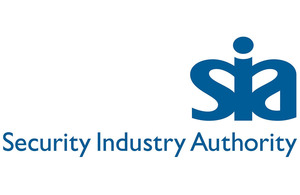Bournemouth man prosecuted for working as door supervisor while suspended
David Dankwa-Smith has been fined for working illegally as a door supervisor at a nightclub in Bournemouth.

Last Wednesday 28 September, David Dankwa-Smith pleaded guilty at Poole Magistrates’ Court to working as an illegal door supervisor at a Bournemouth nightclub. He did this while his Security Industry Authority (SIA) licence was suspended. On Wednesday he was fined £330 and required to pay £1,070 court costs and a victim surcharge of £34.
The SIA suspended Mr Dankwa-Smith’s door supervisor licence on 26 November 2021. Devon and Cornwall Police informed the SIA of Dankwa-Smith’s suspected criminality. Despite the suspension, the evidence showed that Dankwa-Smith worked as an unlicensed door supervisor at the Bournemouth bar and nightclub between 4 February and 5 March 2022.
In January 2022 Dorset Police advised the SIA that Dankwa-Smith was suspected of additional criminality.
The venue owner met with Dorset Police’s licensing officer on 8 March 2022. As a routine together they checked the status of Dankwa-Smith’s licence and the SIA confirmed to Dorset Police that Dankwa-Smith’s licence was suspended.
The same day the venue owner dismissed Dankwa-Smith as soon as he had discovered that his licence was suspended.
The SIA began a criminal investigation case against Dankwa-Smith, and he was invited to participate in an interview under caution, which he failed to attend.
Jenny Hart, one of the SIA’s criminal investigation managers, said that this case highlights the importance of due diligence checks prior to, and during, the deployment of security.
Mr Dankwa-Smith pleaded guilty to working as an unlicensed door supervisor while he was suspended. Suspension means suspension, he could not work as a door supervisor. He has now been prosecuted and has a criminal record. We will now be revoking Dankwa-Smith’s licence. The purpose of the licensing regime is to protect the public. It’s imperative that employers conduct regular checks on the validity of the licensed security staff. Dankwa-Smith put the public at risk and betrayed the trust of his employer.
Notes to editors:
- By law, security operatives working under contract must hold and display a valid SIA licence
- Read about SIA enforcement and penalties
- The offence relating to the Private Security Industry Act (2001) that is mentioned above is as follows: section 3 – working without a licence
- The SIA licence features several easy-to-check security features, which include:
- on the front of the licence you should be able to see holograms when the licence is tilted backwards and forwards
- the expiry date of the licence is embossed on the bottom of the photograph (not printed on) – you should be able to run your finger over the date and feel that it is raised
- on the back of the licence there is a QR code and a bar code. The bar code should bring up the same licence number as shown on the licence
- a UV light should reveal ‘SIA’ in the top right and bottom left of the licence when scanned across the front. On older licences there will be a watermark pattern on the back of the licence that can only be revealed by the UV
- the address on the rear of the licence should show an ‘E’ post code
Further information:
- The Security Industry Authority is the organisation responsible for regulating the private security industry in the United Kingdom, reporting to the Home Secretary under the terms of the Private Security Industry Act 2001. The SIA’s main duties are the compulsory licensing of individuals undertaking designated activities and managing the voluntary Approved Contractor Scheme.
- For further information about the Security Industry Authority or to sign up for email updates visit: www.gov.uk/sia. The SIA is also on LinkedIn Facebook (Security Industry Authority) and Twitter (@SIAuk).